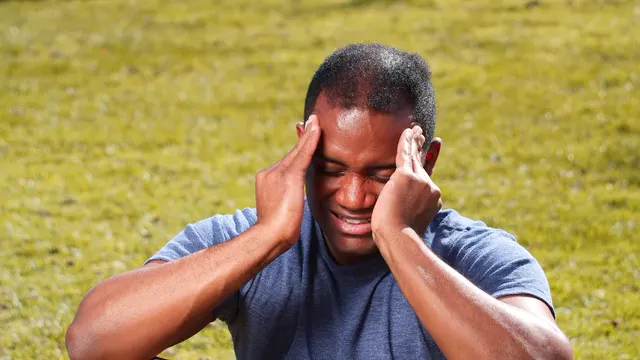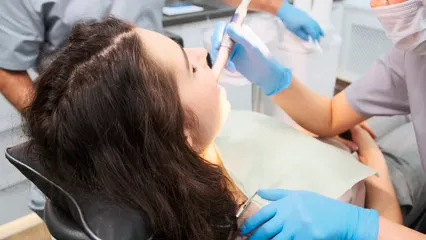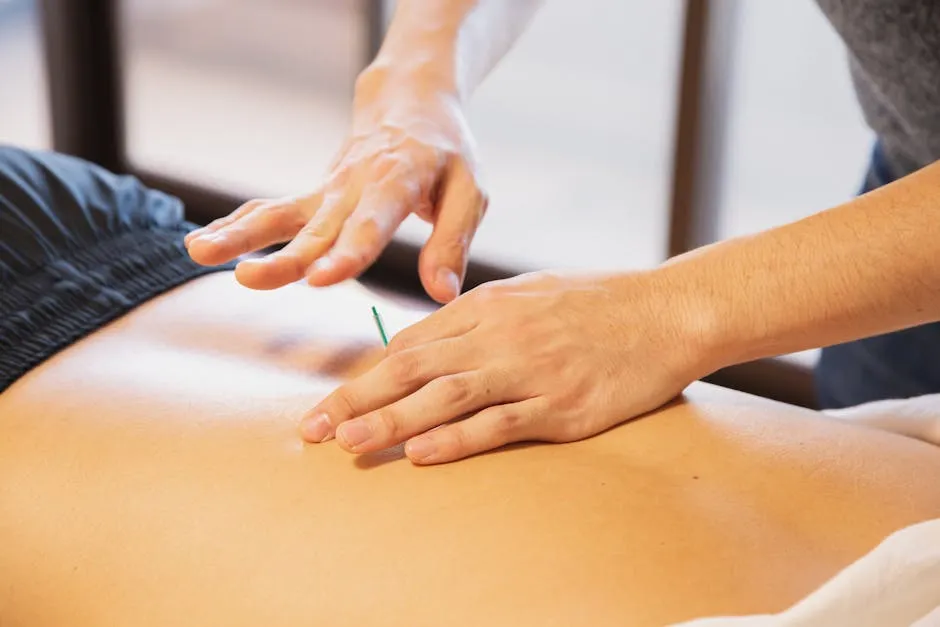
Why Is My Jaw Sore When I Wake Up? Understanding Causes and Solutions
Introduction
Waking up with a sore jaw is a common issue. This discomfort can affect your daily activities, making eating and speaking painful. In this article, we’ll look at the causes of jaw pain upon waking and explore effective solutions to alleviate it.
Summary and Overview
Jaw pain, particularly in the morning, can disrupt your routine and overall well-being. Understanding the root causes is essential for effective treatment. Common reasons for waking up with a sore jaw include bruxism (teeth grinding), TMJ disorders, poor sleep positions, and stress. This article will cover these causes in detail, highlight symptoms to watch for, and provide various treatment options. By recognizing these factors, you can take steps toward relief and prevention.
If you find yourself waking up with a sore jaw more often than not, you might want to consider investing in a mouthguard for teeth grinding. This handy device can help protect your teeth and ease the strain on your jaw during sleep. Think of it as a cushion for your mouth while you dream away!

Causes of Jaw Pain Upon Waking
Teeth Grinding (Bruxism)
Bruxism, or teeth grinding, is a frequent cause of jaw pain during sleep. Many people clench or grind their teeth subconsciously, especially at night. This often occurs due to stress or anxiety, which increases muscle tension. Over time, bruxism can lead to severe dental issues, including worn-down teeth and jaw disorders. The pressure from grinding can exhaust the jaw muscles, causing soreness upon waking. If you suspect you’re grinding your teeth, a visit to the dentist for evaluation and potential treatment, like a nightguard, is advisable.
Understanding bruxism is essential for managing your oral health. why is seeking professional help crucial for managing bruxism in the coming months
Temporomandibular Joint (TMJ) Disorders
The temporomandibular joint, or TMJ, connects your jawbone to your skull. This joint plays a vital role in movements like chewing and speaking. Issues with the TMJ can lead to pain and discomfort, making it hard to carry out everyday activities. Common TMJ disorders include TMD (temporomandibular dysfunction) and arthritis in the joint. Symptoms often involve pain in the jaw, face, or neck, as well as clicking or popping sounds when moving the jaw.
When TMJ disorders flare up, they can cause soreness upon waking. This happens because the muscles around the joint become tense or inflamed during sleep, especially if you grind your teeth or clench your jaw at night. If you’re waking up with a sore jaw, TMJ disorders might be the culprit.
Sleep Position
Your sleep position can significantly impact jaw pain. If you sleep on your stomach, your jaw may twist, causing strain. Side sleeping can also lead to pressure if your pillow doesn’t support your neck properly. Ideally, sleeping on your back with a supportive pillow can help maintain proper alignment. This position minimizes direct pressure on the jaw, which can ease morning discomfort.
Choosing the right pillow is crucial too. A pillow that’s too high or too low can cause your neck to bend unnaturally, increasing tension in the jaw. Experiment with various pillows to find the best fit for your sleeping style. Consider an orthopedic memory foam pillow for ultimate support.

Poor Posture
Believe it or not, your daytime posture can affect how your jaw feels at night. Slouching or hunching over can lead to muscle tension in your neck and jaw. Over time, this tension can manifest as pain when you wake up.
To combat this, consider exercises to improve your posture. Simple stretches and strengthening routines can help. According to studies, about 80% of people experience posture-related issues at some point. By focusing on maintaining good posture during the day, you can reduce jaw pain and neck tension at night. A posture corrector could be your new best friend!
Stress and Anxiety
Stress and anxiety can physically manifest in your jaw. When you’re stressed, your body tends to tense up. This includes the jaw muscles, often leading to clenching or grinding your teeth at night. You might not even realize you’re doing it! This tension can result in soreness when you wake up.
Understanding how stress impacts your health is vital. why do we feel stressed in modern society
Managing stress is crucial for alleviating this discomfort. Techniques such as mindfulness, meditation, and deep breathing exercises can help. Engaging in regular physical activity is also beneficial. It releases endorphins, which act as natural stress relievers. For some extra help, consider a guided meditation CD to help you unwind.
Statistics show that stress-related health issues are on the rise. About 77% of people regularly experience physical symptoms caused by stress. This highlights the importance of addressing stress to improve overall well-being, including jaw health.

Other Possible Causes
Several other factors might contribute to waking up with a sore jaw. Sleep apnea is a common condition where breathing stops and starts during sleep. This can lead to teeth grinding and jaw clenching. Vitamin deficiencies, particularly in calcium and magnesium, can weaken muscles and contribute to pain.
Dental problems, like cavities or misaligned teeth, can also cause soreness. Each of these factors can contribute to your discomfort in different ways. To support your overall health, consider calcium and magnesium supplements to keep your muscles strong!
Take a moment to reflect on your lifestyle habits. Are you consuming a lot of caffeine or alcohol? Do you often find yourself stressed or anxious? Recognizing these patterns can help you better understand your jaw health.

When to Seek Professional Help
If you often wake up with jaw pain, it might be time to consult a dentist. Look for signs like persistent pain, difficulty opening or closing your mouth, or clicking sounds when you move your jaw. These symptoms indicate a potential issue that needs professional attention.
Ignoring jaw pain can lead to more significant problems. A dentist can help identify the root cause and recommend effective treatments. They may perform tests to understand your condition better. You might also benefit from a bruxism awareness book to better understand your condition.
Seeking help for jaw issues is essential. why is seeking professional help crucial for managing bruxism in the coming months
Keeping a symptom diary can also be useful. Document when the pain occurs, its intensity, and any activities that might have triggered it. This information can assist your healthcare provider in making an accurate diagnosis.
Treatment Options for Jaw Pain
Home Remedies
You can start managing jaw pain at home with simple remedies. Heat or cold therapy is effective. Apply a warm compress to relax tight muscles or a cold pack to reduce inflammation. Both methods can provide relief. A heat therapy pad can be a cozy companion for your sore muscles!
Incorporating relaxation techniques can also help. Try deep breathing exercises or gentle yoga stretches to ease tension. These practices promote relaxation and may reduce the frequency of jaw clenching. For those who want to take their relaxation to the next level, a essential oil diffuser can create a calming atmosphere.
Making lifestyle changes is crucial too. If bruxism is a concern, reducing caffeine and alcohol intake can lessen grinding. Ensure you have a calm bedtime routine to promote better sleep hygiene. Consider setting a regular sleep schedule, keeping your bedroom dark and cool, and avoiding screens before bed.

Dental Interventions
If home remedies aren’t enough, dental interventions might be necessary. Mouthguards are a common solution for bruxism. These devices protect your teeth and reduce strain on your jaw during sleep. A dentist can provide a custom-fit mouthguard for better comfort and effectiveness.
In some cases, professional treatments like Botox injections can alleviate bruxism. Botox helps relax the jaw muscles, reducing clenching and grinding. This option is gaining popularity for those who experience severe discomfort. If you need some muscle relief, a deep tissue massage gun might be a game changer!
Regular dental check-ups are essential for early detection of any issues. Your dentist can monitor your jaw health and recommend preventive measures. Staying proactive about your dental care can keep your jaw pain in check and improve your overall oral health.

Alternative Therapies
If you’re seeking relief from jaw pain, consider alternative therapies. Physical therapy and acupuncture are two options that can effectively manage discomfort.
Physical therapy often involves exercises aimed at strengthening the jaw muscles. A trained therapist can guide you through stretches and techniques tailored to your needs. Research shows that physical therapy can reduce pain and improve function for those with jaw disorders.
Acupuncture is another promising treatment. This ancient practice involves inserting thin needles into specific points on the body. Studies indicate that acupuncture may help reduce inflammation and relieve pain. Many patients report noticeable improvements in jaw soreness after several sessions. If you’re looking for a cozy spot to meditate after your sessions, a meditation cushion can help you maintain comfort and focus.
Both therapies offer non-invasive alternatives to medication. If you’re looking for relief, these options may provide valuable support in managing your jaw pain.

FAQs
What are the common causes of waking with a sore jaw?
Waking with a sore jaw is often linked to bruxism and TMJ disorders. Bruxism, or teeth grinding, commonly occurs during sleep, often due to stress or anxiety. TMJ disorders affect the jaw’s movement, causing pain and discomfort. Other factors may include poor sleep posture and stress, which can lead to muscle tension and soreness.
How can I prevent jaw pain while sleeping?
Preventing jaw pain involves a few simple steps. First, consider your sleep position. Sleeping on your back is ideal for jaw health. Use a supportive pillow to keep your neck aligned. Managing stress is also crucial. Techniques like yoga or meditation can help reduce tension in your jaw. Lastly, avoiding caffeine and alcohol before bedtime can decrease the likelihood of teeth grinding.
When should I see a dentist for jaw pain?
You should see a dentist if your jaw pain is persistent or severe. Symptoms that warrant a visit include difficulty opening or closing your mouth, clicking or popping sounds when moving your jaw, and swelling around the jaw area. If you notice these issues alongside headaches or neck pain, professional evaluation is essential for proper diagnosis and treatment.
Please let us know what you think about our content by leaving a comment down below!
Thank you for reading till here 🙂 If you’re looking for ways to de-stress, why not grab a stress relief ball or indulge in some herbal tea for relaxation? Your jaw (and your mind) will thank you!
All images from Pexels




